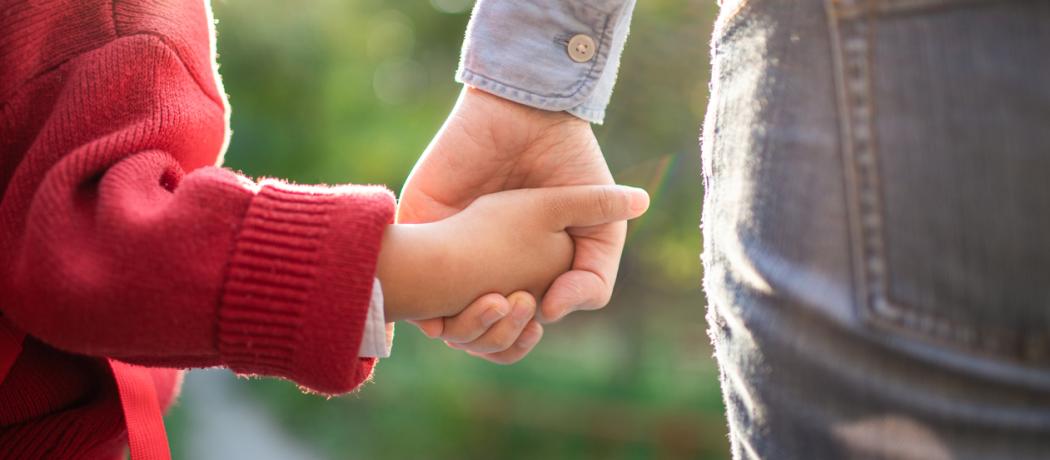The Harvard Study of Adult Development began in 1938 and is still going strong today. The study set out to understand human health by investigating not what made people sick, but what made them thrive. Starting with 724 participants, it has expanded to now include three generations and more than 1300 descendants.
One aspect of the study focused on the benefits that come from staying connected to a person we need. The benefits that come from having secure connections continue through every phase of life. Even seemingly minor physical contact such as holding hands can help managing stress and signal emotions.
James Coan, a professor of psychology at the University of Virginia, was studying brain function while investigating posttraumatic stress disorder. One of his study participants was a former war veteran who asked his wife to be present in the room while he lay in the fMRI machine. His wife sensed that he was agitated by the loud noises the machine made and took his hand in hers. This had a calming effect on him and enabled him to complete the test. Coan was intrigued by this effect and went on to conduct experiments that showed that holding hands with someone the study participant felt close to not only calmed the participant but diminished the amount of pain they felt when they received electric shocks as part of the experiment.
The pressure of touch on the highly sensitive skin of the hand stimulates the pressure-sensitive Pacinian corpuscles, which send signals to the vagus nerve, which conducts signals to the hypothalamus, which in turn lowers the heart rate and blood pressure and contributes to the neurological management of stress responses.
In practical terms, hand-holding can also start oxytocin production, which can help one to feel closer and more connected to someone and also reduce cortisol response to stress.
In Western cultures, spouses and romantic couples often hold hands as a sign of affection or to express feelings of closeness. In Arab countries, North Africa, in some parts of Asia, and in some Mediterranean and Southern European cultures, males hold hands for friendship or as a sign of respect. In contrast, in Western countries, same-sex couples may avoid holding hands in public if they fear homophobic reactions.
The topic of hand-holding came to mind recently while I was holding the hand of William, my 16-month-old much-loved little friend. I became quite aware just how pleasing the simple gesture of hand-holding is to the soul.
—George Szasz, CM, MD
Suggested reading
Owen E. Holding hands: The benefits and why we do it, according to science. Teen Vogue. Accessed 25 September 2023. www.teenvogue.com/story/hand-holding-benefits.
Waldinger R, Schulz M. The good life: Lessons from the world’s longest scientific study of happiness. Simon and Schuser; 2023.
Wikipedia. Holding hands. Accessed 25 September 2023. https://en.wikipedia.org/wiki/Holding_hands.
This post has not been peer reviewed by the BCMJ Editorial Board.
 |
| This work is licensed under a Creative Commons Attribution-NonCommercial-NoDerivatives 4.0 International License. |


Thank you for sharing. . Human touch is a powerful form of communication that can convey emotions, comfort, support, and trust. It can also have physiological and psychological effects, such as reducing stress, pain, anxiety, and blood pressure, as well as enhancing immune function, mood, and social bonding. In medicine, human touch can play a vital role in establishing rapport, empathy, and therapeutic alliance between clinicians and patients. It can also facilitate diagnosis, treatment, and healing.
However, human touch is not always available or appropriate in healthcare settings. There may be barriers such as infection control, cultural differences, personal preferences, or ethical concerns that limit the use of touch. Moreover, some patients may have experienced trauma or abuse that makes them uncomfortable or fearful of touch. Therefore, clinicians need to be sensitive and respectful of the patient’s needs and preferences when using touch.
Human touch is an important aspect of medicine that can have positive effects on health and well-being and enhance doctor patient relationship. However, human touch is not always possible or appropriate in healthcare settings. Eric J Topol’s article in this week Lancet “Machines and empathy in medicine” presents a positive view of how AI could enhance the patient-doctor relationship by providing more time, efficiency, and pseudo-empathy. AI is a technology that can help clinicians improve their communication and empathy skills by aiding or feedback. However, AI cannot replace human empathy in healthcare. Therefore, it is interesting to understand whether AI should be used to complement and enhance human touch and doctor-patient interaction in healthcare.